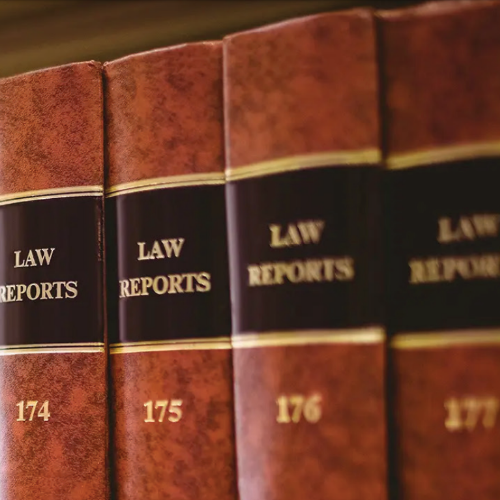The Prevention of Money Laundering Act (PMLA) 2002 was enacted to prevent money-laundering and make provisions for confiscating property made from money-laundering.Assets derived under money-laundering activities have been termed as ‘proceeds of crime’. Section2(1)(u)of the PMLA defines ‘proceeds of crime’ as any property derived or obtained, directly or indirectly, by any person as a result of criminal activity relating to a scheduled offence or the value of any such property. Under section2(1)(v),“property” means any property or assets of every description, whether corporeal or incorporeal, movable or immovable, tangible or intangible and includes deeds and instruments evidencing title to, or interest in, such property or assets, wherever located.
The Enforcement Directorate (ED) is a law enforcement agency in the country which is tasked with enforcing the PMLA. The ED is within itspowers to attach provisionally any asset or property if it is derived or obtained directly or indirectly as a result of a criminal activity relating to a scheduled offence. Before provisionally attaching such property there has to be some recording of reasons by the ED.Section 5 of the PMLA deals with the attachment of property derived from money-laundering. It provides that if a Director or any officer not below the rank of Deputy Director has reason to believe that any person is in possession of proceeds of crime and such proceeds of crime are likely to be concealed, transferred or dealt with in any manner which may result in frustrating any proceedings relating to the confiscation of such proceeds of crime under the Act, he may, by order in writing, provisionally attach such property for a period not exceeding one hundred and eighty days from the date of the order, in such manner, as may be prescribed.
After having broadly discussed the spectrum of PMLA, we must keep it in mind that the objective of PMLA is different than the normal criminal investigating agency. The PMLA process will not hold the trial for the underlying offence and the same shall be carried out by the Police only. Therefore, the law enforcement agency under the criminal jurisprudence of the country will take charge for the punishing the culprit for the underlying offence, the authority under PMLA will chase the trail of money and shall keep its role reserved to the bounds of PMLA.
Chapter IX of PMLA deals with reciprocal arrangement for assistance in certain matters and procedures for attachment and confiscation of property.Section 56empowers the central government to enter into an agreement with government of any other country for enforcing the provisions of PMLA; exchange of information; or investigation of cases relating to any offence under PMLA. Section 57 empowers the special court in India to issue letter of request to a court or an authority in the contracting state competent to deal with such request to examine facts and circumstances of the case & take steps as per the letter of request.
Section 60 provides for attachment, seizure and confiscation etc. of property in a contracting state or India. It provides that where an attachment of property under section 5 has been made or freezing under Section 17 or an order under section 8 or an order of confiscation by a special court has been made and such property is suspected to be in a contracting state, the special court on an application by the director or the administrator appointed on this under Section 10 (1) can issue a letter of request to the court in the contracting state for execution of such order.
In the past, by the time the culprit is booked for the offences, the money was found to have changed its color, form and even domicile. Cash is converted in immovable properties & assets so purchased are parked out of country. Thus, even by punishing the culprit, no real justice could be achieved inasmuch as the wrongdoers already got themselves benefitted. Now, underPMLA the authorities are equipped with the legislative mandate to chase the trail of money even out of country also. The shining feature of the enactment is that while the long-drawn adjudicating process is pending, the authorities can attach assets of the accused. This not only prevents further transfer of ill-gotten assets, but also helps the authorities to liquidate the assets to hit the accused hard.
Further, PMLA has not kept the scope of law enforcement to its own, but has also given duties to institutions like Banks. The Banks if comply with the provisions of the Act, can prove to be eyes and ears to the PMLA authorities. The declaration of beneficial owner and report of suspicious transactions by Banks are significant features of PMLA.
In addition to PMLA, another law named as The Fugitive Economic Offenders Act 2018(FEOA)was also enacted.The objective ofFEOAis to provide for measures to deter fugitive economic offenders from evading the process of law in India by staying outside India & also to preserve the sanctity of the rule of law and for matters connected therewith. Fugitive Economic Offender has been defined in section 2 (1) (f) to be any individual against whom a warrant of arrest in relation to a scheduled offence has been issuedby any court in India, who has left India so as to avoid criminal prosecution or being abroad, refuses to return to India to face criminal prosecution.
While the intent of the government in enacting such laws is clear however it remains to be seen as tohow often the provisions of these laws are implemented to bring economic offenders to justice.It is remains to be seen as to how the provisions of these enactments would work in tandem with the existing statutes relating to attachment of properties.


